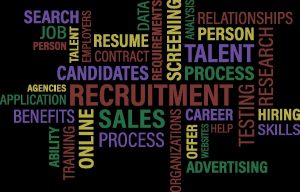The Brief Guide That Makes Talking to the Best Recruiter Simple

The recruitment industry can go a long way in helping job seekers find the right roles. A recruiter will get to know you and your work history. They’ll also take into consideration what you want out of your next job. Then, they’ll match you with employers who are looking for people like you.
But to get all this information, they’ll need to talk to you. As such, knowing how to present yourself well is crucial. Below, we’ll get into our top tips for talking to people in the recruitment industry. Keep reading to learn more about how you can best present yourself to get a job!
Find a Place Where You Can Focus
Once you’ve scheduled a call with the best recruitment agency, you should find a place where you can talk without experiencing any distractions. Avoid busy, loud places where you may struggle to hear.
You also may want to ask someone else to watch any children you have. That way, you won’t get distracted by needing to take care of their needs.
When you’ve found the right place, test the internet or cellular connection, depending on which one you’ll use. That way, you can make sure you’ve got a strong enough connection to sustain the call.
Keep Professional Etiquette in Mind
As soon as the recruiter calls, you’ll need to keep your tone and words professional. Answer the phone with a polite, “Hello, this is *insert your name here*.”
Then, seek to establish a good rapport with the recruiter. In a cheerful voice, tell them that you’re glad to hear from them, and thank them for taking the time to talk to you.
Throughout the conversation, avoid using overly casual language. If you can’t understand the recruiter, avoid saying something like “Huh?” Instead, use the phrase, “I’m sorry, could you please repeat that?”
You don’t want to seem too stuffy, either. Keep in mind that the best recruiter will try to get to know you, so it’s fine to be yourself!
Have a Main Point in Mind
Before the call, you should prepare a main message you want to get across. This should be related to who you are and the type of work you want to do.
Main points serve you in two primary ways. First, they can help you really impress the recruiter. If your main point is backed by proof of your achievements and is unique to you, you might stand out. Having a main message also helps you if the recruiter asks a question you didn’t anticipate.
You can do your best to answer the question quickly and then transition back to your point.
Want to Learn More?
Now that you’ve read this guide, you’re ready to start talking to the best recruiter.
While you’re on the phone, you should have your resume in front of you so you can talk about your past work experiences. Make sure to prepare answers to common interview questions, too. That way, you’ll stand a better chance of getting matched with a great job.
Want more articles like this? Check out the rest of this website today!




